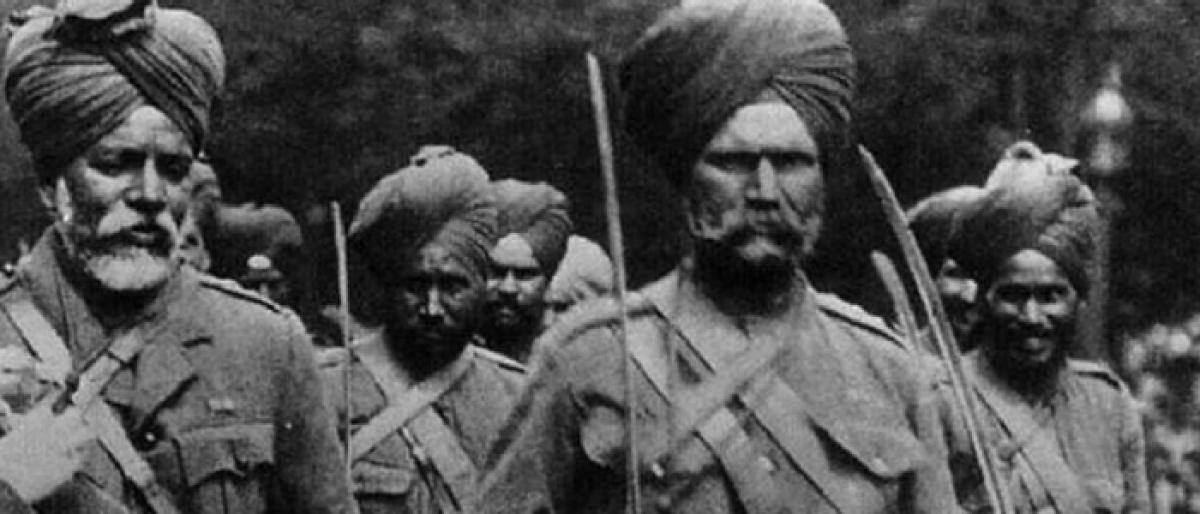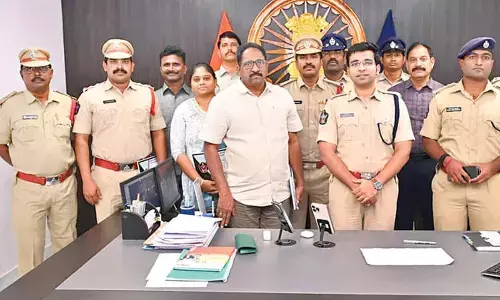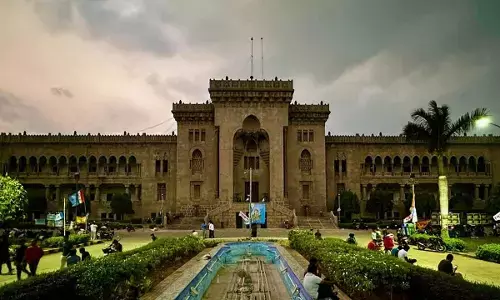Buried down valour

More than 3,00,000 soldiers were evacuated from Dunkirk, France and in contrast to what Christopher Nolan led us to believe in his eponymous movie, the soldiers were not merely British and French troops. Among them were Indians, who were unwittingly drafted into World War II and sadly, the acclaimed filmmaker hardly recognised them.
More than 3,00,000 soldiers were evacuated from Dunkirk, France and in contrast to what Christopher Nolan led us to believe in his eponymous movie, the soldiers were not merely British and French troops. Among them were Indians, who were unwittingly drafted into World War II and sadly, the acclaimed filmmaker hardly recognised them.
Same can be said about many historians, who chronicled the war, could not find any pages to acknowledge the contribution of Indian soldiers. Nearly, 2.5 million soldiers were drafted into World War II by the British, who were then running the country.
Historian Yasmin Khan in her book ‘Raj at War: A People’s History of India’s Second World War’, says troops that are part of Royal India Service Corps, sailed from Bombay (now, Mumbai) to Marseille, took part in the battle of Dunkirk. Not all Indian soldiers were evacuated, as Germans captured an Indian Company and held the soldiers as prisoners of war.
Whenever, British talk about World War II, they tend to romanticise and chronicle their soldiers standing up to the might of the Germans. Many European historians tend to describe the war as “Fight against fascism”, but from the Indian point of view, it was a fight between two imperialistic nations.
India, which was then a colony of the British Empire, unwittingly became part of the World War II. Its efforts, the scars, the pain have not been recognised even after seven decades after the culmination of war.
Indian contribution to the war is invaluable, let alone Dunkirk.
The Allied forces were facing transportation issues and it was hundreds of mules that were requisitioned from India that ferried arms, ammunitions and supplies. Recently, Paddy Ashdown, a British politician revealed that his father was court-martialed for refusing to abandon Indian troops under his command.
It is not just European historians, even Indian historians and history books rarely delve into the participation of fellow countrymen in World War. Raghu Karnad, who wrote ‘Farthest Field’, a story of three brothers, who were drafted into war, said that it was difficult to stitch a narrative with missing pieces of information.
“I thought I knew a bit about modern Indian history, but what I was finding in the research is a revelation, how Indians figured in the war, and how the war transformed India. Who knew that the Indian Army invaded Iraq and Iran in 1941? Or that the following year, the city of Madras was evacuated,” he shared with The Hans India.
Not many would know that coastal city of Visakhapatnam was a target of Japanese. A shell that failed to explode was found near St Aloysius School at that time and it can still be seen at museum in the city.
Karnad says, Indians took part in the war, not for the romantic reasons. “A lot of it was about opportunity. For middle-class boys and men, it was a sudden, dazzling chance to be a military officer, something nearly inconceivable before 1939. It should be remembered that political opinion back then was anti-war and many soldiers that were drafted were nationalists,” he avers.
While, the Allied forces were still licking the wounds of Dunkirk, which was a military debacle, it was the Indian forces that secured the first victory for the British in East Africa. It was Indian troops again that singlehandedly defeated Japanese in Burma (now, Myanmar).
The wars wrecked India economically as well. In Britain, wartime food shortages caused hardship and great inconvenience; in India, they caused mass starvation. At least three million Bengalis died in a catastrophic famine in 1943, a famine that is almost never discussed. According to Madhushree Mukherjee’s book ‘Churchill’s Secret War’, the famine’s causes were a by product of the war, but woes were compounded as the British failed to deliver relief. Mukherjee argues that many soldiers signed up as volunteers to fill their belly.
Indian participation in World War I is also ignored. As many as 1.3 million Indian soldiers served in the war and about 75,000 of them lost their lives, theirs was a sacrifice that was forgotten and it was a memory that was erased.
Numerous books sing paeans of valour of British, Australians, New Zealanders and others in World War I. Acclaimed films like ‘Gallipoli’ immortalised the sacrifices of these soldiers but Indians barely even get a mention.
India contributed a number of divisions and brigades to the European, Mediterranean, Mesopotamian, North African and East African theatres of war. In Europe, Indian soldiers were among the first victims who suffered the horrors of the trenches. They were killed in droves before the war was into its second year and bore the brunt of many a German offensive
Not many would have known that 4,742, Indian soldiers laid down their lives fighting in France and Belgium during World War I. Sir Herbert Baker in 1927 built a memorial in Neuve Chapelle, France, where the French still honour the sacrifice of Indian soldiers by playing the national anthem of India.
Raghu Karnad opined that Indians serving in World War I and II were too late to be properly acknowledged in the history of the British Empire and too early to be admitted into the history of free India. “When we learn about those years now, we’re told that all of India was united in the freedom movement – that’s a myth the Congress party promoted to a nervous young nation. Seventy years later, I think we’ve turned a corner, and there’s a lot we have to learn about ourselves,” he quips.








